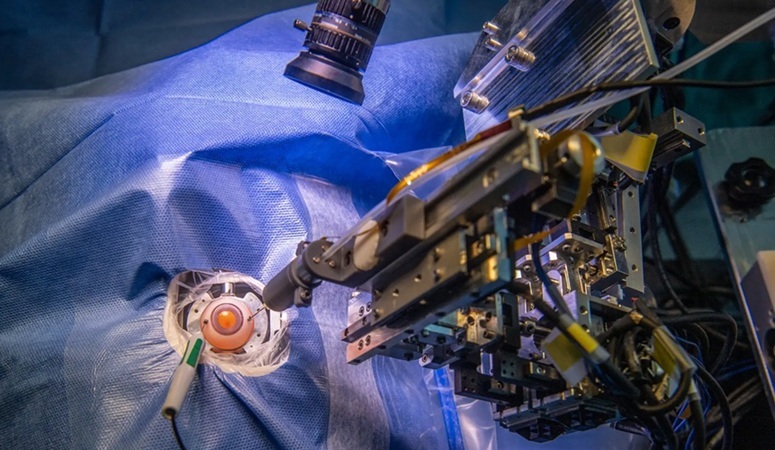Study Asserts Creatine Kinase Testing Is Ineffective
|
By HospiMedica International staff writers Posted on 28 Aug 2017 |

Image: A new study suggests a common blood test for heart attack markers is ineffectual (Photo courtesy of Deposit Photos).
A new study suggests that the creatine kinase-myocardial band (CK-MB) test, widely used to evaluate patients with suspected heart attack, is ineffectual.
Researchers at Johns Hopkins University School of Medicine (JHU-SOM; Baltimore, MD, USA) and the Mayo Clinic (Rochester, MN, USA) compiled peer-reviewed evidence from five studies in order to craft a guideline that highlights the need to phase out CK-MB. They also provided a clinical blueprint for doing so, based on U.S. Health Resources & Services Administration (HRSA; Rockville, MD, USA) strategies for implementing quality improvement initiatives.
The new report concludes that CK-MB testing can no longer be considered an effective biomarker for detecting damaged heart muscle, and can be safely eliminated from practice in the clinical setting. The report is the first in a series of peer-reviewed implementation guides co-authored by faculty from the High Value Practice Academic Alliance (HVPAA), a U.S. national coalition created by JHU that includes more than 80 academic institutions, representing 15 medical specialties and subspecialties that are working together to advance quality-driven medicine.
The clinical blueprint includes four steps:
Design and implement a hospital- wide education campaign.
Partner with clinical stakeholders to remove CK-MB from standardized heart disease routine order sets.
Enlist information technology/laboratory staff to create and integrate a best practice alert that appears on any computerized provider order entry system when clinicians order CK-MB.
Measure use of the test and patient care quality and safety outcomes before and after the intervention.
“This article is the first in a series of collaborative multi-institutional publications designed to bridge knowledge to high value practice,” said corresponding author Jeffrey Trost, MD, of JHU-SOM. “We present multiple quality improvement initiatives that safely eliminated CK-MB to give providers reassurance about trusting troponin levels when managing patients with suspected acute coronary syndrome.”
In 2000 the American College of Cardiology (ACC) and the European Society of Cardiology (ESC) identified cardiac troponin as the ideal biomarker due to its high sensitivity for detecting injury to the heart. The 2014 ACC guidelines concluded that CK-MB provides no additional diagnostic value for diagnosing heart attacks. Despite these recommendations, a 2013 survey conducted by the College of American Pathologists found that 77% of nearly 2,000 labs in the United States still use CK-MB as a cardiac damage biomarker. The report was published on August 14, 2017, in JAMA Internal Medicine.
Related Links:
Johns Hopkins University School of Medicine
Mayo Clinic
U.S. Health Resources & Services Administration
Researchers at Johns Hopkins University School of Medicine (JHU-SOM; Baltimore, MD, USA) and the Mayo Clinic (Rochester, MN, USA) compiled peer-reviewed evidence from five studies in order to craft a guideline that highlights the need to phase out CK-MB. They also provided a clinical blueprint for doing so, based on U.S. Health Resources & Services Administration (HRSA; Rockville, MD, USA) strategies for implementing quality improvement initiatives.
The new report concludes that CK-MB testing can no longer be considered an effective biomarker for detecting damaged heart muscle, and can be safely eliminated from practice in the clinical setting. The report is the first in a series of peer-reviewed implementation guides co-authored by faculty from the High Value Practice Academic Alliance (HVPAA), a U.S. national coalition created by JHU that includes more than 80 academic institutions, representing 15 medical specialties and subspecialties that are working together to advance quality-driven medicine.
The clinical blueprint includes four steps:
Design and implement a hospital- wide education campaign.
Partner with clinical stakeholders to remove CK-MB from standardized heart disease routine order sets.
Enlist information technology/laboratory staff to create and integrate a best practice alert that appears on any computerized provider order entry system when clinicians order CK-MB.
Measure use of the test and patient care quality and safety outcomes before and after the intervention.
“This article is the first in a series of collaborative multi-institutional publications designed to bridge knowledge to high value practice,” said corresponding author Jeffrey Trost, MD, of JHU-SOM. “We present multiple quality improvement initiatives that safely eliminated CK-MB to give providers reassurance about trusting troponin levels when managing patients with suspected acute coronary syndrome.”
In 2000 the American College of Cardiology (ACC) and the European Society of Cardiology (ESC) identified cardiac troponin as the ideal biomarker due to its high sensitivity for detecting injury to the heart. The 2014 ACC guidelines concluded that CK-MB provides no additional diagnostic value for diagnosing heart attacks. Despite these recommendations, a 2013 survey conducted by the College of American Pathologists found that 77% of nearly 2,000 labs in the United States still use CK-MB as a cardiac damage biomarker. The report was published on August 14, 2017, in JAMA Internal Medicine.
Related Links:
Johns Hopkins University School of Medicine
Mayo Clinic
U.S. Health Resources & Services Administration
Latest Critical Care News
- CPR Guidelines Updated for Pediatric and Neonatal Emergency Care and Resuscitation
- Ingestible Capsule Monitors Intestinal Inflammation
- Wireless Implantable Sensor Enables Continuous Endoleak Monitoring
- Pulse Oximeter Index Offers Non-Invasive Guides for Fluid Therapy
- Wearable Patch for Early Skin Cancer Detection to Reduce Unnecessary Biopsies
- 'Universal' Kidney to Match Any Blood Type
- Light-Based Technology to Measure Brain Blood Flow Could Diagnose Stroke and TBI
- AI Heart Attack Risk Assessment Tool Outperforms Existing Methods
- Smartphone Imaging System Enables Early Oral Cancer Detection
- Swallowable Pill-Sized Bioprinter Treats GI Tract Injuries

- Personalized Brain “Pacemakers” Could Help Patients with Hard-To-Treat Epilepsy
- Microscopic DNA Flower Robots to Enable Precision Medicine Delivery
- Origami Robots to Deliver Medicine Less Invasively and More Effectively
- Improved Cough-Detection Technology Aids Health Monitoring
- AI Identifies Children in ER Likely to Develop Sepsis Within 48 Hours
- New Radiofrequency Therapy Slows Glioblastoma Growth
Channels
Surgical Techniques
view channel
Robotic Assistant Delivers Ultra-Precision Injections with Rapid Setup Times
Age-related macular degeneration (AMD) is a leading cause of blindness worldwide, affecting nearly 200 million people, a figure expected to rise to 280 million by 2040. Current treatment involves doctors... Read more
Minimally Invasive Endoscopic Surgery Improves Severe Stroke Outcomes
Intracerebral hemorrhage, a type of stroke caused by bleeding deep within the brain, remains one of the most challenging neurological emergencies to treat. Accounting for about 15% of all strokes, it carries... Read morePatient Care
view channel
Revolutionary Automatic IV-Line Flushing Device to Enhance Infusion Care
More than 80% of in-hospital patients receive intravenous (IV) therapy. Every dose of IV medicine delivered in a small volume (<250 mL) infusion bag should be followed by subsequent flushing to ensure... Read more
VR Training Tool Combats Contamination of Portable Medical Equipment
Healthcare-associated infections (HAIs) impact one in every 31 patients, cause nearly 100,000 deaths each year, and cost USD 28.4 billion in direct medical expenses. Notably, up to 75% of these infections... Read more
Portable Biosensor Platform to Reduce Hospital-Acquired Infections
Approximately 4 million patients in the European Union acquire healthcare-associated infections (HAIs) or nosocomial infections each year, with around 37,000 deaths directly resulting from these infections,... Read moreFirst-Of-Its-Kind Portable Germicidal Light Technology Disinfects High-Touch Clinical Surfaces in Seconds
Reducing healthcare-acquired infections (HAIs) remains a pressing issue within global healthcare systems. In the United States alone, 1.7 million patients contract HAIs annually, leading to approximately... Read moreHealth IT
view channel
Printable Molecule-Selective Nanoparticles Enable Mass Production of Wearable Biosensors
The future of medicine is likely to focus on the personalization of healthcare—understanding exactly what an individual requires and delivering the appropriate combination of nutrients, metabolites, and... Read moreBusiness
view channel
Philips and Masimo Partner to Advance Patient Monitoring Measurement Technologies
Royal Philips (Amsterdam, Netherlands) and Masimo (Irvine, California, USA) have renewed their multi-year strategic collaboration, combining Philips’ expertise in patient monitoring with Masimo’s noninvasive... Read more
B. Braun Acquires Digital Microsurgery Company True Digital Surgery
The high-end microsurgery market in neurosurgery, spine, and ENT is undergoing a significant transformation. Traditional analog microscopes are giving way to digital exoscopes, which provide improved visualization,... Read more
CMEF 2025 to Promote Holistic and High-Quality Development of Medical and Health Industry
The 92nd China International Medical Equipment Fair (CMEF 2025) Autumn Exhibition is scheduled to be held from September 26 to 29 at the China Import and Export Fair Complex (Canton Fair Complex) in Guangzhou.... Read more














